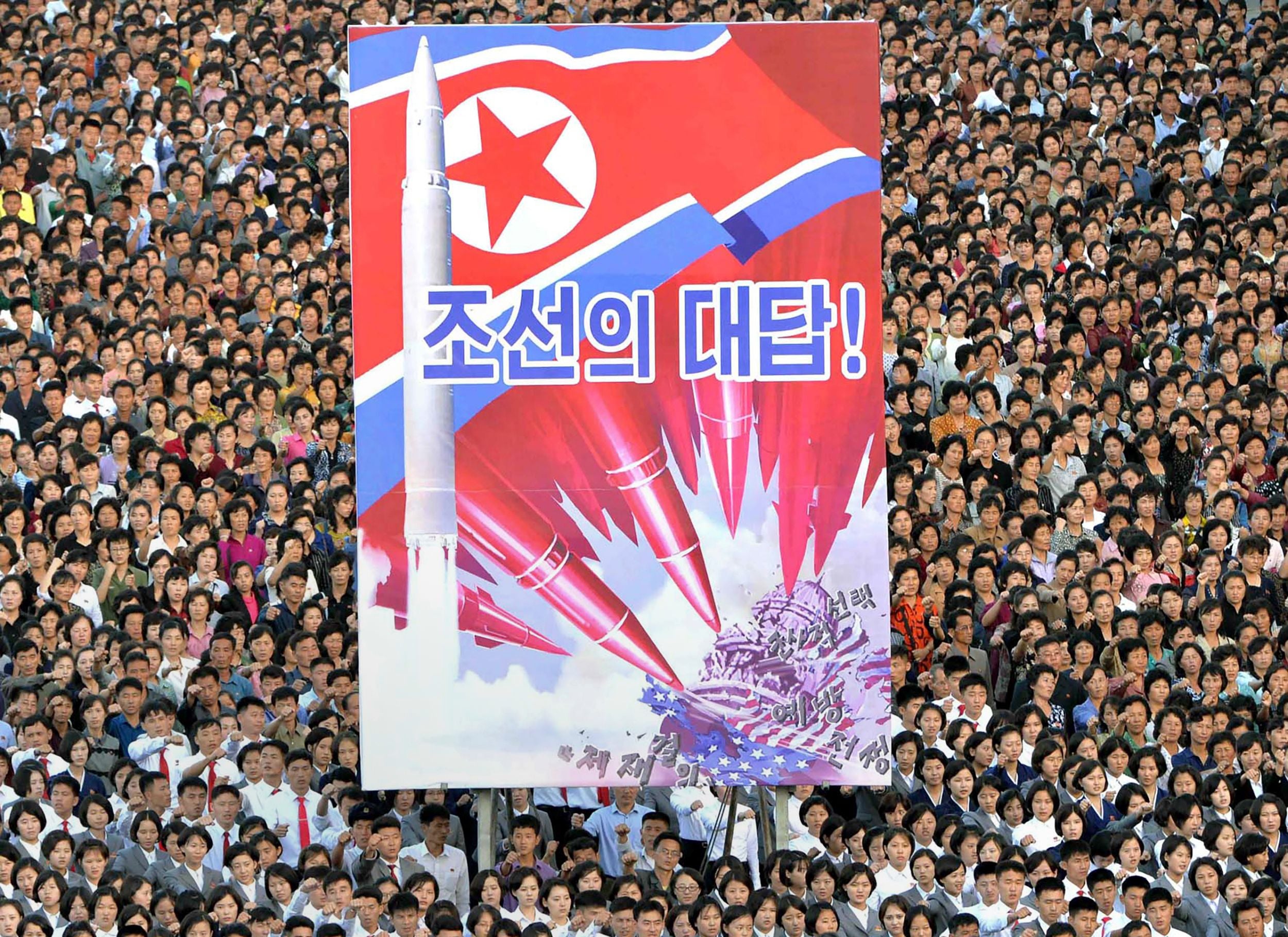The Rusi report might tell us to 'prepare for war in North Korea', but the reality is very different
Kim Jong-un is not really suicidal as Donald Trump says, and may well agree to freezing his nuclear programme under the right conditions


The title of the report is “Preparing for War in Korea” and it presents a vivid montage of apocalypse now, or in the imminent future. We are about to experience, it warns, the worst conflict since the Second World War, with “large-scale US-led air and cyber offensives and massive North Korean retaliation using conventional, chemical and possibly nuclear weapons”. This would be followed by an invasion of North Korea with “casualties likely to reach hundreds of thousands” of people.
Rusi (the Royal United Services Institute), an eminent think-tank, holds that “war is now a real possibility… Time is not on diplomacy’s side.” It reminds us how, in one of his many outbursts, Donald Trump told the United Nations that “Rocket Man [Kim Jong-un] is on a suicide mission for himself and his regime”, and goes on to chart a future of trouble without including a meltdown of the global economy.
All very worrying: but are we really inexorably sliding down this abyss? Speaking about the report, its author, Professor Malcolm Chalmers, was much more cautious. He stressed that “we are not saying that war is probable” and the “policy of containment through sanctions and political pressure may well work”. He wanted to point out that Kim Jong-un is not really suicidal as Donald Trump says, and may well agree to freezing his nuclear programme under the right conditions.
And the title of the report “Preparing for War in Korea” is really, he explained, about the UK preparing for war. Except that it should ensure that it does not have to do so by urging “the US to reject proposals for preventive strikes” and pay “particular attention” to the views of South Korea and Japan. Both the states have, so far, steadfastly opposed military action.
But, rather confusingly, the paper also holds that the UK will hardly have any time to prepare for war or engineer peace. The Trump administration, it says, is unlikely to give Britain much notice: “The UK Government would have, at most, only a few hours to make clear how it stood on what would be one of the most momentous strategic shocks of the post-Cold War era. Its decision would have as profound an effect on the UK’s international standing, and on domestic politics, as the fateful decision to stand ‘shoulder to shoulder’ with the US in the run-up to the 2003 invasion of Iraq.”
Professor Chalmers, the deputy director of Rusi, spoke of the difficulties the US would face in waging war, the problems of invasion and occupation, and the fact that military action would be opposed by Washington’s regional allies, let alone China and Russia. North Korea’s nuclear arsenal, he also pointed out, was not for carrying out pre-emptive attacks, but to act as a deterrent against being attacked.
This was cogent and balanced. But the report is framed to focus on the scenario of death and destruction. It is, however, surprisingly broad-brush, bereft of details about this supposedly impending war. There is little or no information on whether the Americans even know where the North Korean nuclear sites are; how large an invasion force would be needed to subdue an army of a million and six million militia; what would be the size of the occupation force needed; how many millions of refugees would need to be looked after or how many tens of billions of dollars it will cost to the US.
But the florid phrases about hundreds of thousands of casualties and raising the nightmare possibility of nuclear strikes ensures that sections of the media will carry breathless shock and awe tales for Western readers of people perishing in droves in distant lands.
Hyperbole, as we know, has had a major impact on this confrontation. At the start of this current episode, Donald Trump surprised and alarmed members of his administration and allies abroad by threatening the annihilation of North Korea with “fire and fury, the likes of which the world has never seen”. Since then he has promised “devastating military action” and has declared that the US “will have no choice but to totally destroy North Korea”, as well as, “Kim Jong-un will not be around much longer”. The North Korean dictator, in turn, has called Trump “deranged”, “a lunatic” and a “dotard”, amongst other things.
Amid all this noise, US Secretary of State Rex Tillerson, US Defence Secretary Jim Mattis and others have been forcefully pointing out that the only solution lies in diplomacy; that was also the message of the head of the British military, Air Chief Marshal Sir Stuart Peach, this week.
The Rusi report gives the impression that a cataclysmic war is almost inevitable. That is not the case. The reality is that although North Korea’s nuclear programme will continue to be a source of grave concern, the current crisis will be contained, thankfully, through a process of sanctions and negotiations rather than massive land wars, the use of battlefield nuclear weapons and industrial scale massacres.

Join our commenting forum
Join thought-provoking conversations, follow other Independent readers and see their replies